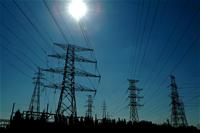Doing business in frontier markets
Adelina Marini, September 21, 2010
 Two weeks ago, while I was working in the morning, I heard the switching of the UPS of the server on. It just switched on and then went off. An electric shock, I thought. If it was in the evening I would have seen the blinking of the lights and a short-while stopping of the TV. Well, it was daylight, but so what. After the electric shock, I was left without Internet for half an hour. It was just when the Internet came back and again - the UPS tried to switch on and then retreated again. A second electric shock. And, again - more than half an hour without Internet. Probably many people would consider it as some sort of great pretenses - wow! they remained without Internet, so what! It is important, especially when one needs the Internet to make a living. And it is even more important when this is a matter of regular practices (at least in my neighbourhood).
Two weeks ago, while I was working in the morning, I heard the switching of the UPS of the server on. It just switched on and then went off. An electric shock, I thought. If it was in the evening I would have seen the blinking of the lights and a short-while stopping of the TV. Well, it was daylight, but so what. After the electric shock, I was left without Internet for half an hour. It was just when the Internet came back and again - the UPS tried to switch on and then retreated again. A second electric shock. And, again - more than half an hour without Internet. Probably many people would consider it as some sort of great pretenses - wow! they remained without Internet, so what! It is important, especially when one needs the Internet to make a living. And it is even more important when this is a matter of regular practices (at least in my neighbourhood).
But this is not all of it! On the next morning I realised, while brushing my teeth, that in fact there was no hot water in the water-heater. Ups, it doesn't work! Probably it was the electric shocks that had damaged it, I thought. And this time I decided to try the mechanism for asking for responsibility from the electric company. I called the hot line of CEZ to ask what was I supposed to do. A kind officer told me her name and shot me directly, by informing me that I should go back long before the end of the 20th century and visit a Customers Service Office that would be convenient for me.
Well, she was not very convincing when explaining to me that the address was convenient. It wasn't. The office in question is about 8 km from where I live. On top of it, this office provides all sorts of service, meaning that the queue lines are huge. Nonetheless, I decided to check whether, by some accident, the private and "imported" electric company had discovered the Internet. On CEZ's web page I found a contact form, which I duly filled in (according to the instructions) and, as there was an option to send a copy to my e-mail, I did that too in order to make sure that my e-mail would reach its final destination. I got the copy. But because I have some not quite good experience with contact forms on Bulgarian web pages, I decided to search a little bit longer. I found an e-mail and sent another there too.
And I waited. However, this issue created some family problems for me, because no one was feeling confident in waiting the procedure to unravel and no one actually believed that there could be any sense to do it, while in the same time we are left without hot water. This is why we decided to repair the water-heater and see what would happen with my complaint. Fortunately, we found out that the water-heater was fine, only the wall-plug was damaged.
My surprise was great when on the next day I god two e-mails from CEZ. One was in response to the contact form I had filled in and the other from the e-mail I had additionally found on CEZ's web page. They informed me that my complaint had been registered, gave me its number and I was informed that experts would visit me to make an assessment and within 30 days I would get a written opinion. Wow, I said to myself, obviously I had underestimated them.
The X day arrived 3 days later when the head of a failure group called me on the phone to ask me when it would be convenient for me that they come. They came half an hour later to explain to me that there was no way an electric shock to cause the damage of a wall-plug. They gave me some more useless information and, honestly, quite incompetent for a mid-literate person. More unpleasant was the fact that they told me I could continue my relationship with CEZ only after I file my complaint in person at the address I mentioned above. And that I should also not rely on any compensations. Besides, as they explained, these were not electric shocks but in my neighbourhood there was a wreck and the part of the neighbourhood I live in was switched to another station, causing the protection to switch off and this operation was very similar to an electric shock. But I should not worry, everything was fine and this is why they would not pay any damages.
So far so good, but I was not waiting for compensations either way. I expected in the 21st century, in a country a member of the EU, fighting for its place in the world economy, to get a service that would not deprive me of electricity, Internet, roads, or whatever. This is why I decided to try the procedure because I hoped that I would provoke them with my complaint and they would react accordingly. But no. The same evening, after the thorough inspection of the CEZ's team in my house, and while I was enjoying the good Monday and the delicious dinner with my family, the power went off. For about 15 minutes! My first thought was - horrible, we just published several articles and now whoever wanted to read them would not be able to because the UPS could only sustain the server for no more than 20 minutes. My second thought was, horrible, the battery of may laptop would not sustain and I would have to save everything, close everything and wait.
And this happened right after I finished the article about the mysterious and secret participation of the Deputy PM and minister of finance Simeon Dyankov at the summer Davos - the World Economic Forum in the Chinese city of Tianjin. Dyankov took part in a panel, entitled "Doing Business on the Next Frontier". The main issue were the so called frontier markets - countries that are neither developing, nor developed, nor emerging markets, but frontier in both meanings of the word (frontier in terms of pure geography, situated by a large and developed, emerging or developing market and frontier in terms of - there is no definition about them). From the participation of the Deputy PM in this panel I was left with the firm conviction that Bulgaria was precisely a frontier market.
Even more striking, especially against the backdrop of the lack of electricity late  in the evening, was his response to the question "What can frontier markets contribute with to the global economic growth?" An interesting question - meaning what is the use of these countries, since they are something like nothing in the world. So, Mr Dyankov explained that, in fact, frontier markets were most often useful to each other and gave the example of an investor, coming from a frontier market in South-East Asia, who offered such a hospital equipment that could support the entire system in cases of power shortages. As Dyankov defined it - an extraordinary innovation that was hard to understand, except for the countries that have issues with such a type of infrastructure.
in the evening, was his response to the question "What can frontier markets contribute with to the global economic growth?" An interesting question - meaning what is the use of these countries, since they are something like nothing in the world. So, Mr Dyankov explained that, in fact, frontier markets were most often useful to each other and gave the example of an investor, coming from a frontier market in South-East Asia, who offered such a hospital equipment that could support the entire system in cases of power shortages. As Dyankov defined it - an extraordinary innovation that was hard to understand, except for the countries that have issues with such a type of infrastructure.
Fortunately, he said, Bulgaria had no such problems. It's true that every politician is obliged to make even the impossible to convince foreign investors to invest their money in his country. I cannot think of anything more appropriate to do this than the World Economic Forum Davos. But, after all, imagine how, during a live-saving operation, the powers goes off. Fine, some hospitals are equipped with generators, which, however, are either too old or can provide power for a short time, or something third.
And, honestly, it is true that no matter the fact that whatever medical operations are more important than everything else, after all the business is what drives the economy of a country, from which the budget generates revenues in order to sustain hospitals to operate and save lives. And when the business had decided to pass into the 21st century and the state had not, what kind of competitiveness are we talking about then? And about what attractiveness for investors?
Furthermore, Mr Dyankov spoke in Tianjin about his observations that most investors, contrary to his expectations while he was an economist at the World Bank, wanted the country they intend to set foothold, to have infrastructure - roads, telecommunications, electricity, sanitary etc. And he used to think, while in the World Bank, that investors expected an effective judiciary.
This is what I used to think too, but as a representative of a small and hardly surviving business, still not been able to get in touch with the judiciary, frak off, I want electricity, Internet, water and telecommunications. And when I get all this and it becomes an integral part of our lives, just like the air is, then I would probably start expecting the same from the judiciary. Which, in fact, has still not entered the 21st century, but ... this is another topic.